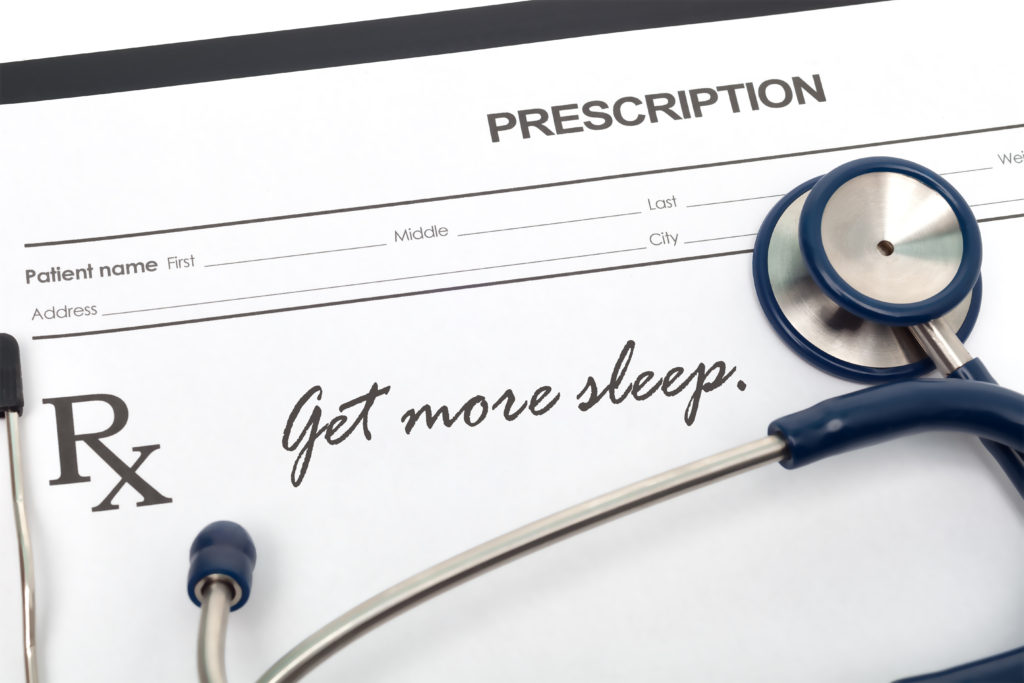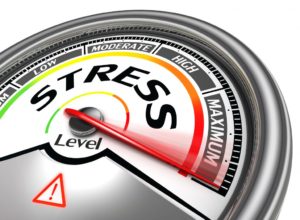You are here because you have tried everything else. The natural stuff hasn’t worked for you. Maybe you’re taking medications or self-medicating just to get a few hours of shut-eye. Or maybe even those aren’t working for you anymore. Don’t worry, there’s still hope. For my patients with insomnia, I recommend the following:
1. Check your oxygen supply
Oxygen is the number one most critical fuel source that we have and it’s not only crucial for your sleep, it’s crucial for your life. You can go weeks without food, a couple days without water, but literally only minutes without oxygen. If anything is diminishing the oxygen supply to your brain during the day or night, it will interrupt your sleep.
Here are a few ways to tell if you’re not getting enough oxygen to your brain:
- You’re tired and pale
- You have trouble concentrating
- Your heart rate is fast (above 90 beats per minute at rest) and you feel it pounding
- You need to take deep breaths, or you sigh a lot
- You snore loudly at night
- Your feet and/or hands are cold and sometimes look blue
- Your feet and/or ankles are swollen and when you touch them the indentation stays even after you take your fingers away (pitting edema)
If you answered YES to any of the above, please call your doctor right away. These are serious issues that need to be addressed immediately. Very often there are functional things that can be done to improve your oxygenation, but the life-threatening variables need to be ruled out first and foremost.
2. Check your blood sugar levels
If your blood sugar is unstable, it could wreak havoc on your ability to sleep, as your brain needs a constant supply of fuel to function properly. Blood sugar swings can make your brain feel like it is starving and throw off your entire system. Dysregulated blood sugar can make it hard for you to get to sleep and/or stay asleep throughout the night.
If you crave carbs or sweets, have low energy during the day, have a hard time sleeping and/or have trouble losing weight, these are all warning signs that your blood sugar is not balanced. Blood sugar testing is simple and routine, and regulating blood sugar is one of the keys to health and wellness, including healthy, restorative sleep. Three important tests to have done are: fasting glucose, hemoglobin A1c and fasting insulin.
3. Test your hormones
A complete hormone panel is important to do when you suffer from insomnia.
I look at adrenal gland hormones, especially cortisol, and especially before bedtime, if sleep is an issue. Stress can cause spikes in cortisol levels; cortisol levels that are too high at bedtime or that increase during the night can keep you from sleeping, and not sleeping can put stress on the adrenal glands and lead to a very vicious cycle. Testing allows us to develop a plan to unwind the cycle and help normalize the stressed system.
Melatonin is an important hormone for sleep and normal circadian rhythms. It should be higher at nighttime and lower in the morning when it’s time to wake up.
If your sex hormones (estrogen, progesterone and testosterone) are out of balance, this can also greatly affect your ability to get to sleep and stay asleep. Your temperature regulation centers may also be affected by these hormone shifting and you could be too hot or too cold during the night.
Thyroid hormones that are too low OR too high can affect sleep and sleep quality. Thoroughly testing your thyroid function is important for helping you figure out why you aren’t sleeping well.
4. You could have an imbalance between the excitatory and inhibitory neurotransmitters in your brain
Neurotransmitters are chemical messengers that communicate information throughout your brain and body. In general, we have excitatory neurotransmitters that are important for wakefulness, learning and thinking. Inhibitory neurotransmitters are important to help us wind down, feel calm and to help us sleep (some neurotransmitters have both excitatory and inhibitory functions, depending on where their receptors are located).
To grossly oversimplify the function of neurotransmitters, think of the accelerator and brakes on a car. The accelerator is like the excitatory neurotransmitters. They get you moving and going. The inhibitory neurotransmitters are like the brakes. They slow you down and let you stop (sleep).
If you have too much excitatory and not enough inhibitory neurotransmitters, or if the areas of the brain that release these chemical messengers are overworking or underworking, you can experience insomnia (these imbalances may be seen along side other brain-based issues such as anxiety, depression, and trouble focusing, to name a few).
This is where functional neurology comes in, and a doctor who is certified in this field can detect these imbalances and develop a plan to help you. Specific brain-based exercises and natural neurotransmitter precursors can help balance your accelerator and braking system–your inhibitory neurotransmitters and the areas of the brain that produce them.
Sleep is important, and our bodies and brains will simply break down if we don’t have enough of it. Today in the functional medicine fieldswe have more tools than ever to help you experience restorative sleep naturally. Contact Dr. Engelbart today to schedule a consultation to determine the best plan of action for you!



 Hormones are involved in almost every function of the body, from reproduction to metabolism to digestion to hair growth. Women’s hormonal systems are more complex than men’s, and it takes a skillful eye to determine what is out of balance and the best course of action to establish synergy and homeostasis in the body.
Hormones are involved in almost every function of the body, from reproduction to metabolism to digestion to hair growth. Women’s hormonal systems are more complex than men’s, and it takes a skillful eye to determine what is out of balance and the best course of action to establish synergy and homeostasis in the body.